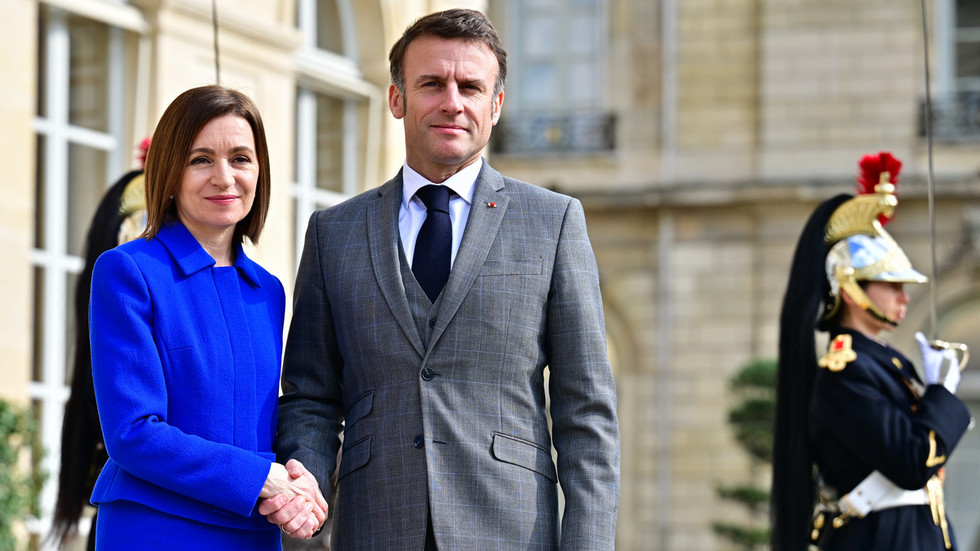London, United Kingdom – Jeremy Corbyn, an independent leftist lawmaker after losing Labour’s leadership post five years ago, is building a new political party.
In his words, it will be “a real alternative” to the main groups on the political spectrum in the United Kingdom.
Zarah Sultana, one of Labour’s youngest lawmakers until July 3 when she quit the ruling party, said she will co-lead the new project.
The party has no name yet but has political observers talking.
The pollster YouGov reported last week that 18 percent of Britons would consider voting for a Corbyn-led party.
The new movement comes as Prime Minister Keir Starmer steers Labour towards the political centre. This shift helped Labour regain ground with swing voters and business leaders, but some traditional Labour supporters feel snubbed.
What do we know about the new left-wing party, and can it survive in a system that for decades has centred on two main parties? Is this the beginning of a viable alternative or the start of another schism?
Here’s what you should know:
Why is this movement being organised now?
The ruling Labour and Conservative opposition parties have for years represented the centre left and right of politics – and dominated government.
But amid a more heated political climate, the Reform UK party, which represents a harder right, is rising.
Meanwhile, Starmer’s Labour lacks a vocal leftist grouping. The new party could fill that void.
At the same time, Israel’s war on Gaza has become a flashpoint. Corbyn and Sultana, fierce critics of Israel’s actions in the Palestinian enclave, demand an immediate ceasefire and an end to UK arms sales to Israel. They see Labour’s cautious positioning as a moral and political betrayal.
 Sultana quit the Labour party this month to join Corbyn’s initiative [File: Handout/UK Parliament via Reuters]
Sultana quit the Labour party this month to join Corbyn’s initiative [File: Handout/UK Parliament via Reuters]In a post on X, Sultana accused Labour of failing to improve voters’ lives while accusing the “political establishment” of smearing “people of conscience trying to stop a genocide in Gaza as terrorists”. Corbyn has argued that the government refuses “to deliver the change people expected and deserved”.
Gaza is central to the development of the new party, said former Labour Councillor Amna Abdullatif, who is among several people who have quit Labour over its stance.
“It’s not just the horrors we’re witnessing. It’s the silence, the silencing and the disciplinary action used to shut down debate.”
Abdullatif believes that overall in UK politics, “right-wing narratives dominate precisely when the country desperately needs genuine change and hope.”
Corbyn has promised his party will tout a peace-focused foreign policy.
Political historian Jeremy Nuttall said that since Corbyn relinquished the Labour leadership after a general election loss in 2019, Starmer has created a “deliberate and explicit distance” between himself and the left.
A new party is emerging thanks to the “particularly difficult economic situation constraining public spending commitments … as well as the particular silence of the Gaza issue”, he said.
A party of principle or personality?
Corbyn has suggested the party should be rooted in community activism and boosted by grassroots energy. He has refrained from talking about its leadership.
Peter Dorey, professor of British politics at Cardiff University, said Corbyn enjoys a “cult following among a few younger left-wing voters and political activists” but among the broader electorate is seen as “indecisive and not someone who would make a good prime minister”.
He added that Corbyn is not considered “charismatic” in the way that the telegenic Reform leader Nigel Farage is to many voters.
Reform has consolidated its identity around immigration and populism while the left remains ideologically broader and more internally divided, offering multiple issues but no single focal point, Dorey said.
Critics believe Labour’s economic policies are shaped by the interests of business leaders and global bond markets as opposed to meeting the material needs of the people. On immigration, Labour is accused by some of trying to compete with anti-immigrant Reform. Starmer recently upset many by saying Britain risked becoming an “island of strangers” in reference to immigration.
Abdullatif believes the Corbyn-Sultana initiative could work if it tackles “Labour’s mistakes” head-on and takes time to develop.
“Grassroots movements are showing that people-led politics can work. Antiracism movements, community organising and local campaigns have been building real solidarity networks whilst demonstrating that politics can be centred on justice and human dignity,” she said.
Where do the Greens fit in?
The Green Party seems ready to work with the new party.
Zack Polanski, now running to lead the Greens, posted on X: “Anyone who wants to take on the Tories, Reform and this failing Labour government is a friend of mine.”
Some pollsters suggested a Corbyn-Sultana party could win 10 percent of a national vote, halving Green support and pulling 3 points from Labour, veteran political pundit John Curtice noted.
In The Times, Curtice wrote: “Much of Corbynista Britain has already left Labour for the Greens” while Green voters are “overwhelmingly on the left on economic issues and mostly take a liberal stance on so-called culture-war issues”.
Although Curtice warned that polling on the party should be viewed with caution, “we know nothing about the hypothetical party’s policies or how well a Corbyn-Sultana leadership could work.”
Can it win seats?
The UK’s first-past-the-post system is unforgiving for small parties. Under this system, a candidate with the most votes in a constituency wins the seat – meaning that even if a new party gains significant national support, it can still walk away with few or no MPs unless that support is geographically concentrated.
But breakthroughs are possible.
Dorey estimated the new party might win five to seven seats, particularly when the issue of Gaza is a top concern. But in many constituencies, it will simply split the progressive vote and risk handing seats to Reform or the Tories.
A fragmented left that undermines its gains and gives oxygen to Farage would be Labour’s nightmare. Could that fear lead to change within the Labour party?
It’s unlikely, Dorey said. Labour’s leadership sees its biggest threat on the right, not the left. Unless the new party becomes a serious electoral force, it is unlikely to pull Starmer in a more “radical” direction, he said.
“If the new Corbyn-Sultana party fails electorally, which it almost certainly will, this will simply convince the Labour leadership that more radical left-wing policies are electorally unpopular. Starmer et al will continue to pursue centrist or only vaguely left-of-centre policies.”
Are we witnessing the end of the two-party era?
With Reform surging, the Greens growing and legacy party defections like Jake Berry, a former Conservative minister who recently joined Reform UK, the landscape is shifting.
For supporters of Corbyn and Sultana, Labour has become “Tory lite”, bereft of its socialist values while embracing neoliberalism at the expense of the people.
Whether the party will have staying power remains to be seen.
“It is what we call a flash in the pan – a dazzling flame or bright light which fades as quickly as it appeared,” Dorey said. “Or perhaps a better comparison is a distress flare, which briefly lights up the sky and attracts immediate attention but then fades and falls to the ground, leaving no trace.”
Abdullatif is more hopeful.
“It’s early days, and there’s crucial listening and learning ahead to ensure this becomes a movement that can grow rather than remain fragmented,” she said. “When political narratives shift to extremes, progressive movements must provide the rebalancing in this chaos, and this is needed now more than ever.”

 6 hours ago
1
6 hours ago
1









